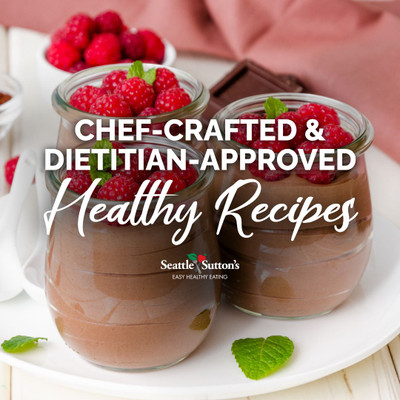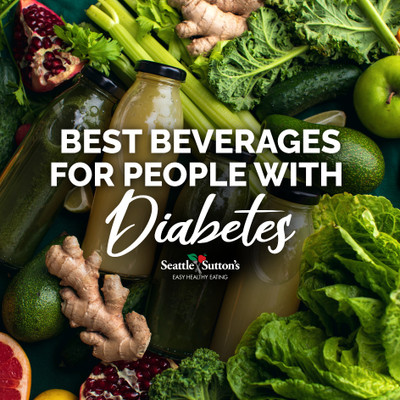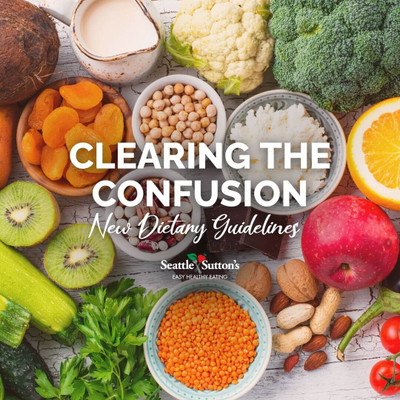The Truth About Seed Oils
Oil is a staple ingredient in many kitchens worldwide. Whether it's used for sauteing vegetables, marinating meats, or dressing a salad, oil adds flavor, texture, and depth to a wide range of dishes. For the most part, oils can be part of a balanced and healthy diet. However, not all oils are created equal, and it is crucial to make informed choices based on both taste preferences and nutritional needs.
One type of oil that has been under increasing scrutiny recently is seed oil. Commonly found in processed foods and kitchen cabinets, seed oils are sometimes thought to be unhealthy or even harmful. But is that true? Research shows that the story about seed oils is not so simple. In fact, when used properly and in moderation, seed oils can be beneficial to your health.
Let us explore the truth behind seed oils, their nutritional profile, the controversies surrounding them, and how you can incorporate them into a healthy diet.
What Are Seed Oils?
Seed oils are a type of vegetable oil derived from the seeds of various plants. Unlike oils derived from fruits, such as olive or avocado oil, seed oils come from the seeds themselves. There are multiple methods of extracting seed oils, the most common being oil extraction, which involves applying high heat and pressure, or cold-pressing, which crushes seeds to extract the oil without using heat.
Common types of seed oils include:
Canola Oil
Corn Oil
Sunflower Oil
Peanut Oil
Sesame Oil
Pumpkin Seed Oil
Chia Seed Oil
These oils are popular for various reasons. They are generally affordable and versatile and can be used in a range of cooking methods, from frying and sautéing to baking and grilling. Most seed oils have a high smoke point, meaning they can withstand the high temperatures needed for certain cooking techniques without breaking down and producing harmful compounds. This makes them a practical option for high-heat cooking methods.
Additionally, the flavors of seed oils vary widely, which allows for greater versatility in cooking and enhances the flavor profile of different dishes. For example, sesame oil has a rich and strong flavor, making it ideal for use in dressings and marinades, while milder oils like canola or peanut oil work well for baking or grilling.
Are Seed Oils Bad for You?
One of the most common concerns about seed oils is their potential to contribute to negative health outcomes. Some people argue that these oils are harmful because they are high in omega-6 polyunsaturated fatty acids (PUFAs). When PUFAs are consumed in excess, people think they could lead to inflammation and increase the risk of chronic diseases like heart disease.
To understand whether this is a valid concern, it is important to first understand the role of fats in the body. Oils, including seed oils, are composed of different types of fatty acids, primarily saturated and unsaturated fats.
-
Saturated Fats: These fats, found in animal products like meat and dairy, as well as coconut and palm oils, have been associated with increased levels of “bad” LDL cholesterol, which can contribute to heart disease. While small amounts of saturated fat can be part of a balanced diet, it's recommended to limit intake to less than 10% of calories.
-
Unsaturated Fats: Unsaturated fats are the healthier option and are typically found in plant-based oils, including seed oils. There are two main types of unsaturated fats: monounsaturated and polyunsaturated. Research suggests that unsaturated fats can help lower LDL cholesterol and raise HDL (good) cholesterol, which is beneficial for heart health.
While omega-6 fatty acids, found in abundance in many seed oils, are essential for the body and serve important functions such as regulating inflammation and cell membrane formation, it is true that an imbalance of omega-6 and omega-3 fatty acids (the other type of polyunsaturated fat) may promote inflammation. However, the issue lies more in the overall imbalance of omega-6 to omega-3 in the typical Western diet, rather than an inherent problem with seed oils themselves.
In moderation, seed oils, which are rich in polyunsaturated fats, can contribute to a healthy diet. They may help reduce the risk of heart disease, regulate blood sugar, and improve cholesterol profiles. For instance, chia seed oil, in particular, has shown promise in supporting immune health, improving vision, and potentially offering protection against cancer.
The real problem comes when seed oils are consumed in excess, particularly in processed and packaged foods. Many processed foods, such as chips, baked goods, and crackers, contain seed oils. We know that eating too much processed foods contribute most added sugars, refined carbohydrates, salt, and unhealthy fats to our diets. All these qualities of these food have been shown to have detrimental effects on health. Focusing on the seed oils is not looking at the whole picture. Eating fast food that has been fried in lard versus peanut oil doesn't make it healthier, in fact it would be adding harmful saturated fats.
Why Seed Oils Are Often Misunderstood
The reason many people associate seed oils with negative health outcomes is often due to their prevalence in processed foods. It is not the seed oils themselves that are harmful, but the foods they are found in. Diets high in processed foods are linked to various chronic health conditions, including obesity, diabetes, and cardiovascular disease.
It is essential to separate the effects of seed oils from the effects of processed foods. While it’s true that consuming too many omega-6 fats may contribute to chronic inflammation, the overall quality of the diet, including the consumption of fruits, vegetables, whole grains, and lean proteins, plays a more significant role in overall health than any single food component.
How to Incorporate Seed Oils into a Healthy Diet
The key to incorporating seed oils into a healthy diet is moderation and balance. Instead of avoiding seed oils entirely, focus on using them in place of less healthy fats, such as butter or lard, and be mindful of their use in processed foods.
Here are some tips for including seed oils in a healthy, balanced diet:
-
Cook with seed oils: Opt for seed oils like canola or sunflower oil when cooking at high temperatures, as they have high smoke points. These oils can also be used in baking or grilling in place of butter or coconut oil.
-
Choose whole seeds: In addition to using seed oils, consider adding whole seeds like chia, flax, or sunflower seeds to your meals. These seeds provide fiber, protein, and healthy fats that support overall health. Add them to smoothies, salads, or yogurt for a nutrient boost.
-
Read food labels: Be mindful of the processed foods you buy. Many packaged snacks and baked goods contain seed oils along with added sugars and unhealthy fats. Look for whole-food alternatives, such as homemade granola or roasted nuts, to avoid excess processed foods.
-
Watch your portion sizes: All oils, including seed oils, are high in calories. To avoid overeating, use a sprayer or nonstick cookware to reduce the amount of oil you need to use in cooking.
The Bottom Line About Seed Oils
Seed oils, when used appropriately and in moderation, can be part of a healthy diet. They provide beneficial unsaturated fats, which support heart health and overall well-being. The key is to focus on the quality of your diet as a whole, ensuring it includes a variety of nutrient-rich foods and minimizes processed, calorie-dense options.
When it comes to healthy eating, there’s no need to fear seed oils, it is all about balance. Seattle Sutton's Healthy Eating offers meals that thoughtfully incorporate these oils, helping you enjoy their benefits without overdoing it. By focusing on whole, fresh ingredients and minimizing processed foods, Seattle Sutton's meals support both your body and your taste buds. If you have specific health concerns or dietary needs, their nutritious options provide a great foundation, and bonus you can consult with the Seattle Sutton Healthy Eating dietitian to ensure you are making the best choices for your individual circumstances.

.jpg)
.jpg)






 Weight Loss
Weight Loss Health & Wellness
Health & Wellness Diabetes
Diabetes Heart Health
Heart Health Motherhood & Family
Motherhood & Family Dietary Restriction
Dietary Restriction Other Health Conditions
Other Health Conditions About SSHE
About SSHE


